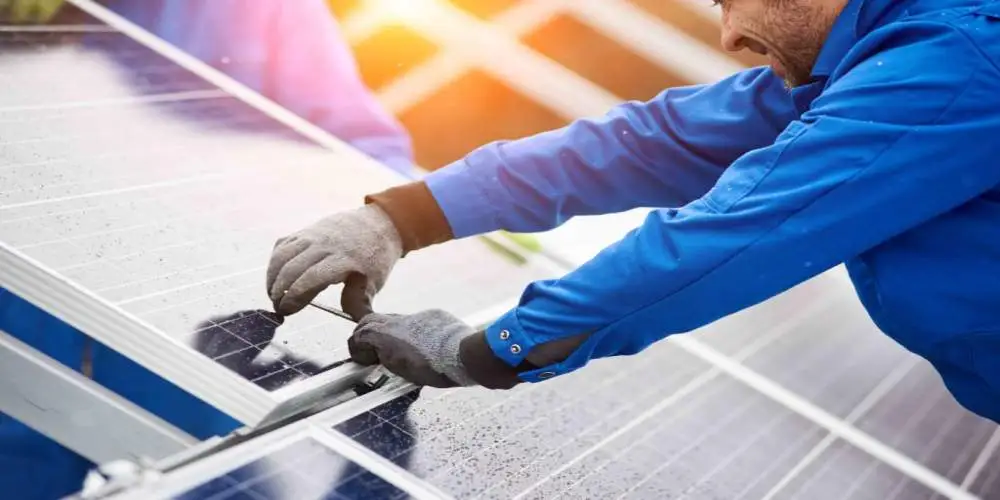Investing in a residential solar panel and battery storage system is a smart move towards sustainable energy and reduced electricity bills. But just like any other technology, these systems have a finite lifespan. We’ll delve into the factors that affect the lifespan of solar panels and batteries, drawing insights from reputable sources like the National Renewable Energy Laboratory (NREL) and PVEL, and also provide tips for homeowners on how to extend the life of their solar panel and battery systems.
Understanding Solar Panel Lifespan
Solar panels are designed to last for several decades, and their lifespan is often measured in terms of years of efficient energy production. On average, most solar panels come with warranties ranging from 20 to 25 years, and they are expected to operate well beyond that period.
Factors Affecting Solar Panel Lifespan
Quality of Manufacturing: The quality of materials and workmanship during the manufacturing process plays a crucial role in determining the lifespan of solar panels. High-quality panels are less likely to degrade quickly and more resistant to environmental factors.
Environmental Conditions: Environmental factors such as extreme temperatures, humidity, and pollution can impact the longevity of solar panels. NREL’s research indicates that panels exposed to harsh environmental conditions may degrade faster.
Panel Technology: Different panel technologies have varying lifespans. Monocrystalline panels generally have a longer lifespan compared to thin-film or polycrystalline panels.
Installation Quality: Proper installation is critical for the long-term performance of solar panels. Poorly installed panels may suffer from issues like moisture penetration, which can lead to degradation.
Maintenance: Regular cleaning and maintenance can significantly extend the life of solar panels. Removing dirt, debris, and snow helps panels operate at peak efficiency.
Shading: Shading from trees, buildings, or other obstructions can reduce a solar panel’s efficiency and lead to localized heating, potentially shortening its lifespan.
Understanding Battery Storage System Lifespan
Battery storage systems are essential for storing excess solar energy and ensuring a consistent power supply during cloudy days or at night. However, they also have a limited lifespan, typically measured in cycles.
Factors Affecting Battery Storage System Lifespan
Depth of Discharge (DoD): The depth to which a battery is regularly discharged affects its lifespan. Shallower discharges extend battery life. Most manufacturers recommend keeping the DoD below 80% for lithium-ion batteries.
Temperature: Battery performance is sensitive to temperature. High temperatures can accelerate degradation, while lower temperatures can reduce capacity temporarily. Proper temperature control is crucial.
Charging and Discharging Rates: Rapid charging and discharging can put additional stress on batteries, potentially shortening their lifespan. Using compatible chargers and inverters is essential.
Battery Chemistry: Different battery chemistries have varying lifespans. Lithium-ion batteries are commonly used in residential systems due to their reliability and longer lifespans compared to lead-acid batteries.
Manufacturer Quality: The quality of the battery and its manufacturer can significantly impact its lifespan. Batteries from reputable manufacturers tend to have more accurate lifespan estimates.
Tips for Extending the Lifespan of Solar Panels and Batteries
Regular Cleaning and Maintenance: Clean solar panels at least twice a year to remove dirt and debris. Inspect for any damage and address it promptly. Check battery connections and perform maintenance as per the manufacturer’s recommendations.
Monitor Performance: Utilize monitoring systems to keep an eye on the performance of your solar panel and battery system. This allows you to detect issues early and take corrective action.
Proper Installation: Ensure that your solar panels and batteries are installed by qualified professionals to minimize the risk of installation-related problems.
Shade Management: Trim or remove shading sources that affect solar panel efficiency. Consider advanced shading solutions such as microinverters or power optimizers to mitigate shading issues.
Temperature Control: Maintain a stable temperature environment for battery storage systems. Proper ventilation and insulation can help regulate temperature and extend battery life.
Avoid Deep Discharges: Monitor and control the depth of discharge for your battery. Use energy management systems to prevent excessive discharges.
Manufacturer Guidelines: Always follow the manufacturer’s guidelines for charging, discharging, and maintenance of your solar battery storage system.
Solar panels and battery storage systems are a valuable investment for homeowners looking to reduce their carbon footprint and energy costs. While these systems have finite lifespans, proper care and maintenance can significantly extend their longevity. Understanding the factors affecting their lifespan and following best practices for installation and maintenance will ensure that your solar panel and battery system continues to serve you efficiently for years to come. Remember, a well-maintained system not only saves you money but also contributes to a more sustainable future.
